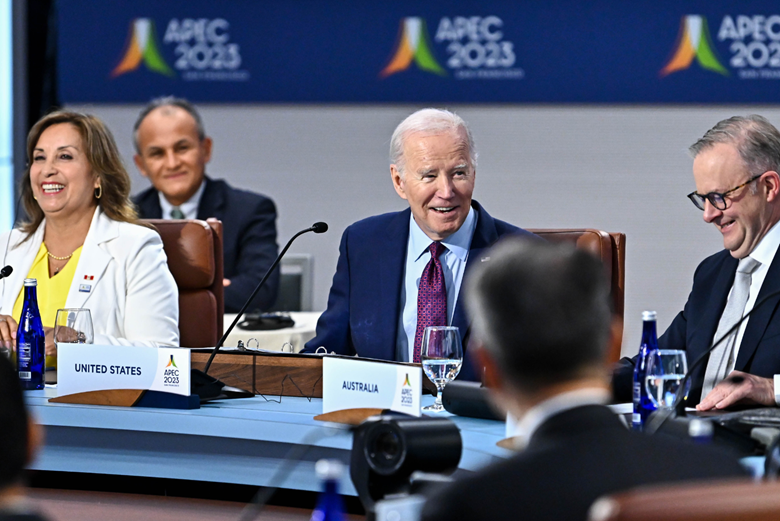Asia-Pacific Leaders United in Building Inclusive, Resilient, Sustainable Economies

Facing a variety of economic and environmental challenges, economic leaders from 21 APEC member economies convened in San Francisco on 16 and 17 November setting the direction on the forum’s work to advance sustainability, just energy transitions and interconnectedness, as well as to build inclusive and resilient economies.
Chaired by the President of the United States Joe Biden, APEC Economic Leaders’ Week concluded with a joint declaration that reinforces members’ commitment to taking joint actions to address the concerns and aspirations of all people in the Asia-Pacific.
Also read: APEC Economic Leaders Jointly Agree to Golden Gate Declaration
In his opening remarks at the Leaders’ Retreat on 17 November, President Biden applauded the commitment of leaders of the world’s most dynamic region in working together to find ways to build an inclusive resilient and sustainable economies for the Asia-Pacific.
“We talked about the progress that requires partnership. Together, we laid out the work we'll be undertaking to avert the worst impacts of the climate crisis,” said President Biden, adding that United States’ companies have announced more than USD 50 billion in investments into APEC economies to build new undersea cables, decarbonize energy grids and complete the largest United States’ airline expansion into the South Pacific in history.
President Biden also pointed to the progress made by the Indo Pacific Economic Framework in which 13 of the 21 APEC economies are members, with the agreements to strengthen supply chains, accelerate clean energy transition and combat corruption.
President Biden highlighted key areas where economies can further build the region’s infrastructure, including inclusive, interconnected growth and technology.
Watch: President Biden’s Remarks at APEC Economic Leaders’ Retreat
“When everyone in our economy has a chance to contribute, everyone gets a fair shot, we all do better,” President Biden said, announcing the launch of Women in the Sustainable Economy Initiative.
The US initiative contains over USD 900 million in commitments from governments, companies, foundations and civil society to increase women’s participation in blue and green industries such as forest management, clean energy, fisheries and recycling.
President Biden added that the United States is also supporting programs that expand access to science, technology, engineering and mathematics education, address laws that limit women's equal access to land and natural resources, and plan to invest in young women and entrepreneurs in the maritime sector.
“And I—I challenge us all to find new ways we can seize the full potential of all of our people,” President Biden added.
President Biden predicted that technological change will advance more in the next 10 years than it has in the last 50 years.
“I don't think that's hyperbole. I think we are going to see that changing so rapidly, and together we have to make sure it changes for the better,” added President Biden in reference to his conversation with China’s President Xi Jinping on the sidelines of the retreat about the impact of artificial intelligence and how economies have to work on it.
“Together we must ensure that change is for the better. We must ensure that the digital technologies like artificial intelligence (AI) are used to uplift, not limit the potential of our people,” President Biden stressed.
In October, President Biden signed an executive order to set a new AI standards for public the and private sector in the United States. This includes requiring developers of the most powerful AI systems to share their safety test results with the government, as well as strengthen technologies to protect privacy and preventing employers from using the technology to exploit their workers.
“But this is a shared challenge and requires shared solutions,” said President Biden. “And I would respectfully suggest all of us around this table have a responsibility to work together to seize the opportunities and manage the risks of this technology, which are so critical to our collective economic futures.”
President Biden concluded his remarks by introducing President Dina Boluarte of Peru who will host APEC in 2024.
In her intervention, President Boluarte observed that Peru’s APEC host year will continue to build on the vision that was embraced in 2020, which includes promoting equity between men and women, empowering women in economic development with respect in society and politics, as well as in employment.
Peru will present its priorities to APEC senior officials during the first week of December.
For further details and media inquiries, please contact:
[email protected]

